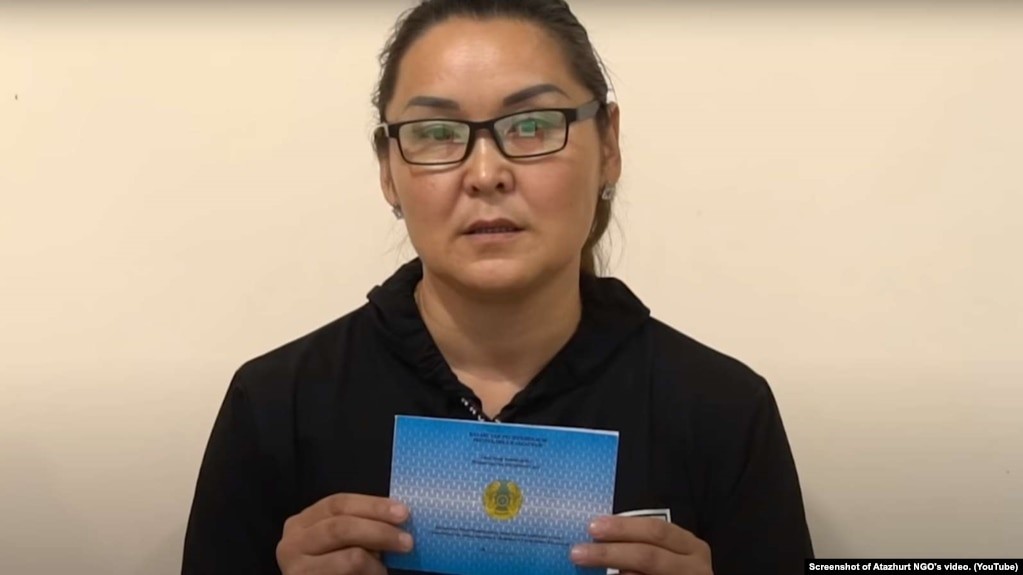Xinjiang's Kazakhs hellish limbo
The testimonies of those who managed to escape persecution in the Chinese region but are caught in limbo due to Astana's refusal to grant documents because they entered the country illegally. Beijing police pressure on relatives who have remained in Xinjiang.
Almaty (AsiaNews) - The Azattlyk website continues to report on the plight of ethnic Kazakhs who left Xinjiang, and their relatives who remained in the Turanian region of China.
Some of them, such as Kayša Akan, Kaster Musakhan, Murager Alimuly managed to return to their original homeland by crossing the border clandestinely, for fear of Chinese persecution.
They have already been living with refugee status for years, but the government in Astana has not decided to grant them citizenship, or even the documents necessary to move to another country. According to the refugees themselves, Kazakhstan is under pressure from Beijing, which is holding the refugees' relatives hostage to force them to return to China.
Kayša Akan had fled to Kazakhstan in May 2018, passing without documents from the Khorgos crossing, after being locked up for a period in one of the "political re-education camps" where hundreds of thousands of Uyghurs, Kazakhs and others have been sent in recent years representatives of Turkish-speaking ethnic groups present in Xinjiang.
Beijing officially explains this measure as "the need to de-radicalize citizens", teaching them the Chinese language and culture. Many prisoners of these concentration camps speak of cruel tortures, forced labor exploitation, medical experiments within the walls of buildings similar to a prison.
Today, 47-year-old Kayša lives in the city of Talgar, in the Almaty region, and has managed to form a new family with a local inhabitant, but due to the lack of documents, the spouses cannot officially register their union.
Kaysha's 70-year-old mother, with another adult son and two brothers, live in the countryside of Togyztarau in Xinjiang, and her daughter wishes she could get her to come to Kazakhstan.
She has tried to send her an invitation through other relatives, but the Chinese side has always refused her permission, indeed often her mother receives visits from the local police, who demand the voluntary return of her daughter, "otherwise we will think about it alone".
The Chinese forced one of the brothers to return to the village from the place where she worked, ordering him not to go anywhere else, but promising that "if Kaysha returns, we will return the money to her bank account, and her house as well." ”. But she is certain that if she were to return as soon as she would end up immediately in prison.
To Kayša's request, together with Kaster and Murager, to obtain Kazakh citizenship, the police station responded based on the law "on population migration", where according to article 49 people who entered Kazakhstan illegally are not allowed to stay permanently in the territory of the republic.
The other two had also fled for fear of repression, arriving in October 2019 via the borders of Zaysansk in the eastern Kazakhstan region. At the end of 2020, all three obtained refugee status, with an identity document valid for one year, renewed in the following two years.
35-year-old Kaster herds sheep in the valleys of the Almaty region after spending several months in prison. In Xinjiang he was a horse trainer for riding competitions, and he recently found in Almaty an elderly enthusiast who calls him to prepare his horse for some competition.
He too is worried about his sixty-year-old mother, whose health is delicate, who goes in and out of the re-education camps together with her other disabled son, without being able to obtain medical care. The 29-year-old Murager had fled with him, leaving both parents, his wife and a minor son in Xinjiang, and today he works as a cook in another relative's restaurant in Almaty.
Some friends and relatives arrive from Xinjiang on tourist visas, which now allow Chinese citizens to stay in Kazakhstan for two weeks, and tell the refugees that "the police are waiting for you, they know you'll be back."
As refugees they cannot obtain documents or regular work, even if from Astana it is assured that "the parliament is examining the changes to these rules". Provided that the permission of the masters of Beijing is obtained.
11/08/2017 20:05







.png)










